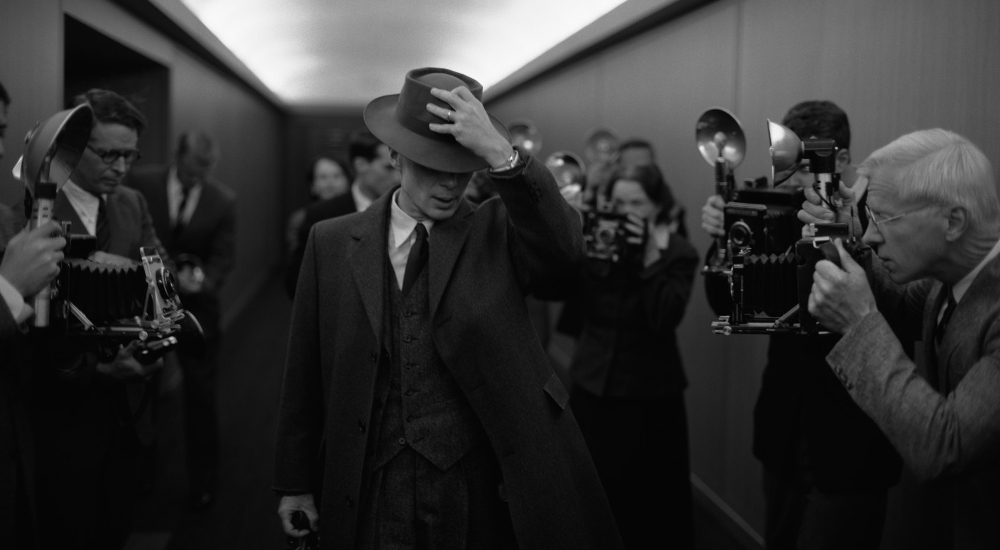"Theory will take you only so far."
It has been twenty-three years since Christopher Nolan released Memento. Since then, we've seen the likes of The Prestige, The Dark Knight, Interstellar, Dunkirk, and Tenet. Each, in its own right, is a masterful work of brilliant storytelling. Each, in its own right, has minor issues that generate heated discussions among cinema loyalists.
Oppenheimer, the director's latest creation, is the culmination of his past projects. Pulling and prodding from each of his previous films, he has devised his magnum opus, his oeuvre. But more than a near-flawless passion project that bears his unique fingerprint, the complex, long-winded character study benefits from a true tour-de-force performance from titular star Cillian Murphy.
The film, in broad strokes, tells the life story of American theoretical physicist J. Robert Oppenheimer. Oppenheimer was pivotal in developing the first nuclear weapon as part of the Manhattan Project, ushering in the Atomic Age and giving the American government its greatest weapon at the close of World War II. Non-linear in its presentation, the film beautifully analyzes the cause and effect of Oppenheimer's involvement in the project as Nolan's skillful hand delicately navigates the complex story with uncanny precision. The result gives viewers a unique and explosive experience that proves revolutionary, even for the esteemed filmmaker.
Meant for the big screen, Oppenheimer beautifully articulates the power of the cinematic experience. Visually stimulating from start to finish, Nolan utilizes every frame. The raw and vulnerable science community is artfully exposed as the US government works to manipulate their minds for their personal agenda. The story's course is intricate, primarily thanks to the back-and-forth time jumps. But articulate and intelligent dialogue gives the film a sense of elevated sophistication. Unlike similarly minded works, the words are not overextended, the language not overly cultured. Instead, it feels authentic, fitting for the situation. And, for lack of a better phrase, it simply works within the context of the narrative.
Matt Damon, Emily Blunt, Florence Pugh, and Robert Downey Jr. do brilliant work in their respective roles, breathing life into the world that surrounds Oppenheimer. But ultimately, this film is Murthy's to carry. He does so with unquestionable poise and grace.
Seizing the moment, the often underappreciated actor gives the performance of his storied career. His depiction, covering decades of Oppenheimer's life, is articulated beautifully as Murphy eloquently maneuvers his way through a turbulent moment in US history, giving a pulse to an otherwise passive story. His movements are deliberate, every nuance serving a larger purpose. And even amidst the changing landscape, his most powerful moments come in a small, congested room where he answers questions asked by a preset group of men, questions that center around his political affiliations and his commitment to his country. Every shift in body weight appears calculated, every deep breath a telling reinforcement of Oppenheimer's stubborn personality. And even though we all know the story's direction, the pathway Nolan and Murphy take allows us to enjoy the ride.
Clocking in right at three hours, Oppenheimer is an odyssey unlike any other. Though I can't verify the authenticity of the story or the truthfulness of its account, Nolan crafts a telling tale that is highly entertaining and well-paced. After conquering both the superhero and sci-fi genres, there was little doubt he'd misstep here. But even amid the growing pressure and uncertainty, he stays true to himself and his style. As a result, the audience gets to sit and absorb the brilliance that fills the screen.

